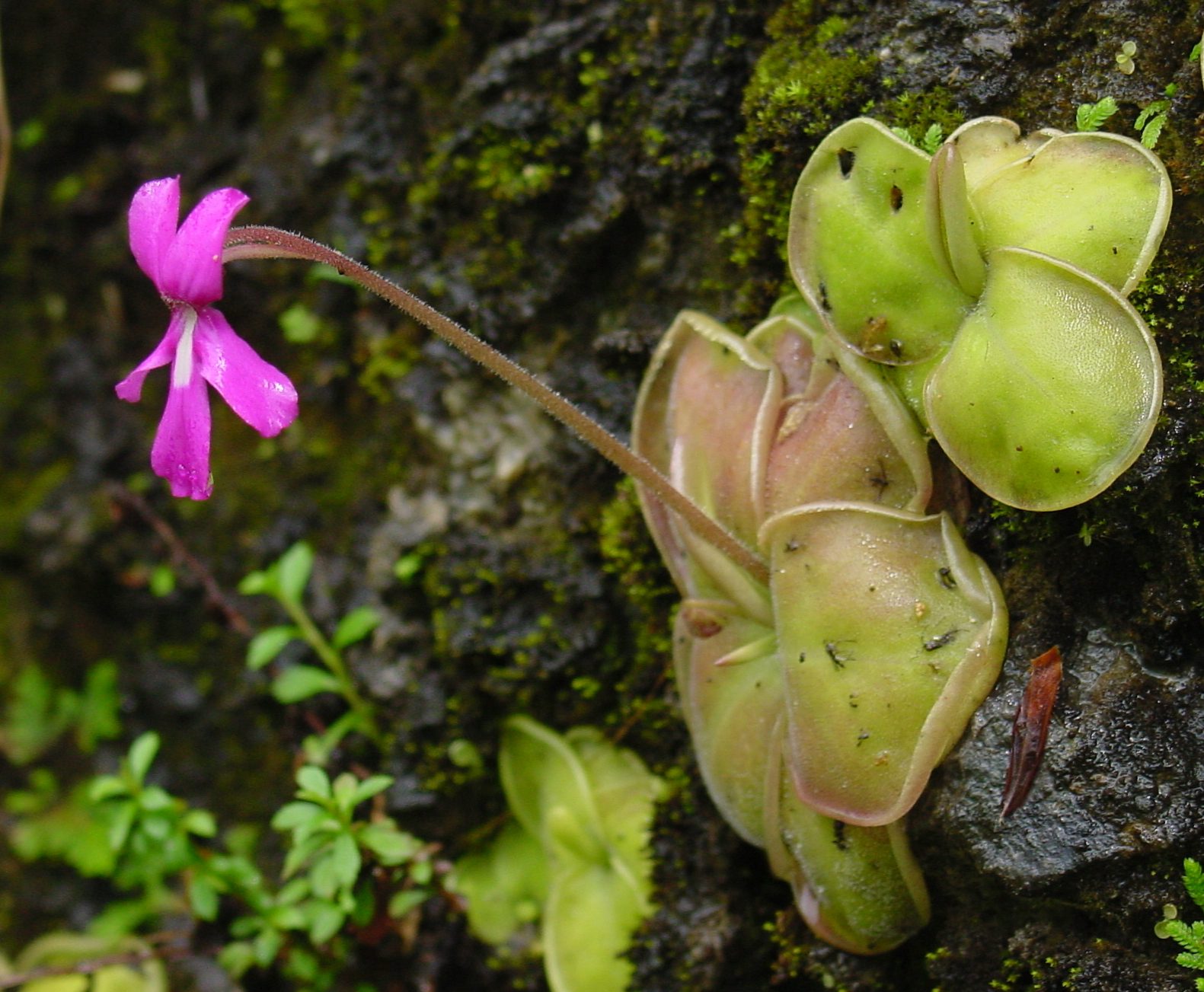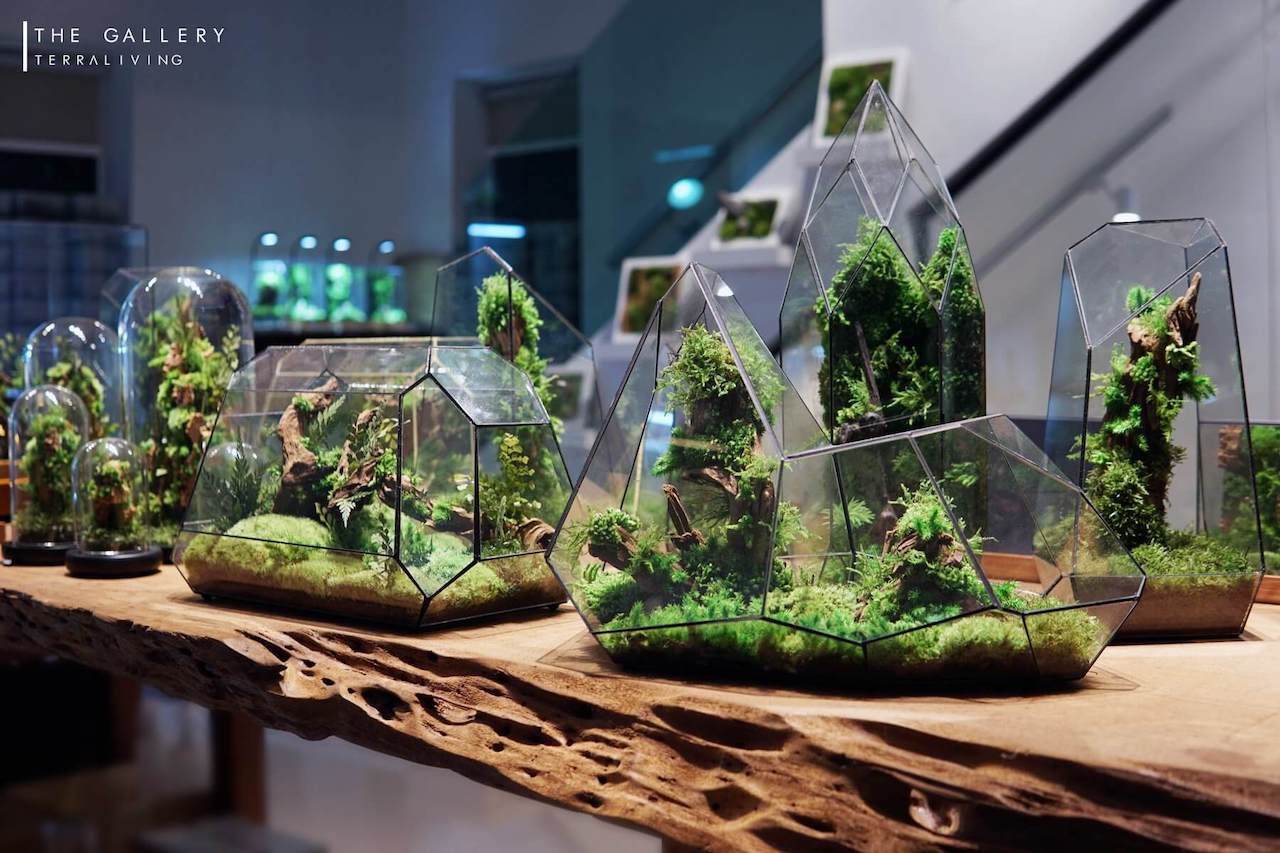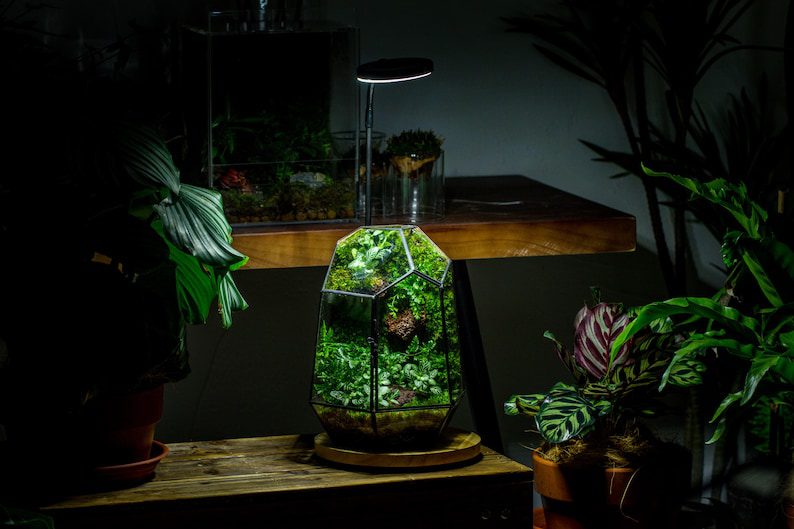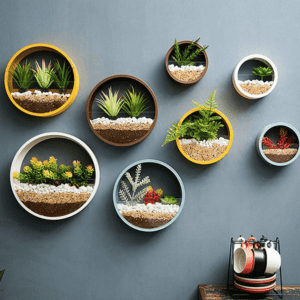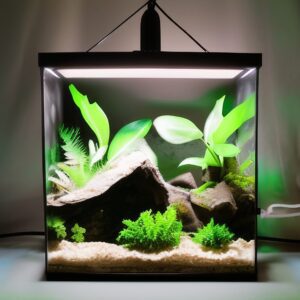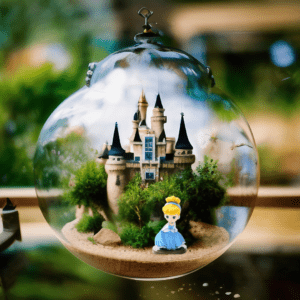Pinguicula, Butterworts
Type: Carnivorous | Size: Small, Up to 16cm tall.
Butterworts are tiny and compact, great for terrariums due to their small size and unique flowering.
How to grow and care for Pinguicula:
What soil should I use for Pinguicula plants?
The best type of soil for a carnivorous plant is a mix of peat moss and sand.
Ideal Lighting Conditions for Pinguicula:
Medium to bright direct light
Ideal Temperatue Conditions for Pinguicula:
If you want to create a warm habitat for your plants, you will need to heat a terrarium. A good way to do it is to buy a heating pad and place it under the terrarium tank and set the temperature to 20-25 degrees C. Temperature will also depend on the type of a carnivorous plant.
Ideal Watering Conditions for Pinguicula:
Only use purified, distilled, demineralized water or natural rainwater. You will only need to feed your carnivorous plant if you keep it inside the house. If it is outside, it will take care of the food by capturing the bugs that sit down in the trap to enjoy the nectar. Some plants will even manage to capture bugs inside the house, so make sure to check on them.
Ideal Humidity Conditions for Pinguicula:
Carnivorous plants generally love humidity of 60% to 90%.
Growing Pinguicula in terrariums:
Terrariums are a great way to grow carnivorous plants as they maintain high humidity, consistent temperatures and can be placed in good lighting conditions. Most carnivorous plants live in wet conditions, in a nutrient-poor soil. This is why carnivorous plants trap insects and digest them to get nutrients. These amazing plants do well in humid conditions and very bright direct light.
You can grow carnivorous plants in both open and closed terrariums. The issue with carnivorous plants in closed terrariums comes down to feeding, as it can difficult for plants to find live feed. You can choose a terrarium container that has a small opening, or feed your carnivorous plants yourself. For ButterWorts, some species really need the higher humidity of a fish tank terrarium, while others simply enjoy it. Many can be grown in shallow, ornamental terrariums, but remember to respect dormancy periods.

